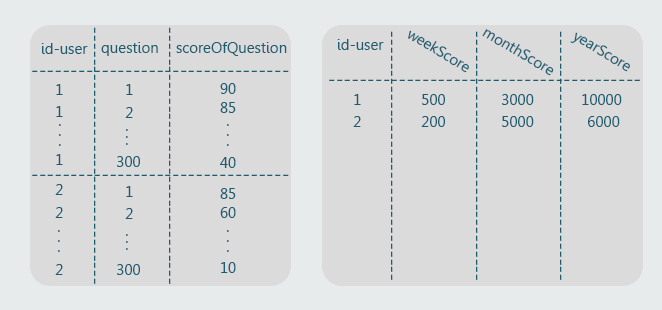I'm new to database stuff so I apologize if I say anything ridiculous.
I have a table with 300 columns, which stores the score of 300 questions. There is also an "id-user" columns which is the primary key, and three more columns named "weekScore", "monthScore" and "yearScore". Every time a user answer a particular question the id will found and score will added to the particular column, and the score added to weekScore, monthScore and yearScore too. As you see there is a lot of queries go to this table.
Question: I want to index three score columns (weekScore, monthScore and yearScore). is it better to separate these three columns and make another table because of the indexing?

Or I change the design to this, and index three columns (weekScore, monthScore and yearScore).

